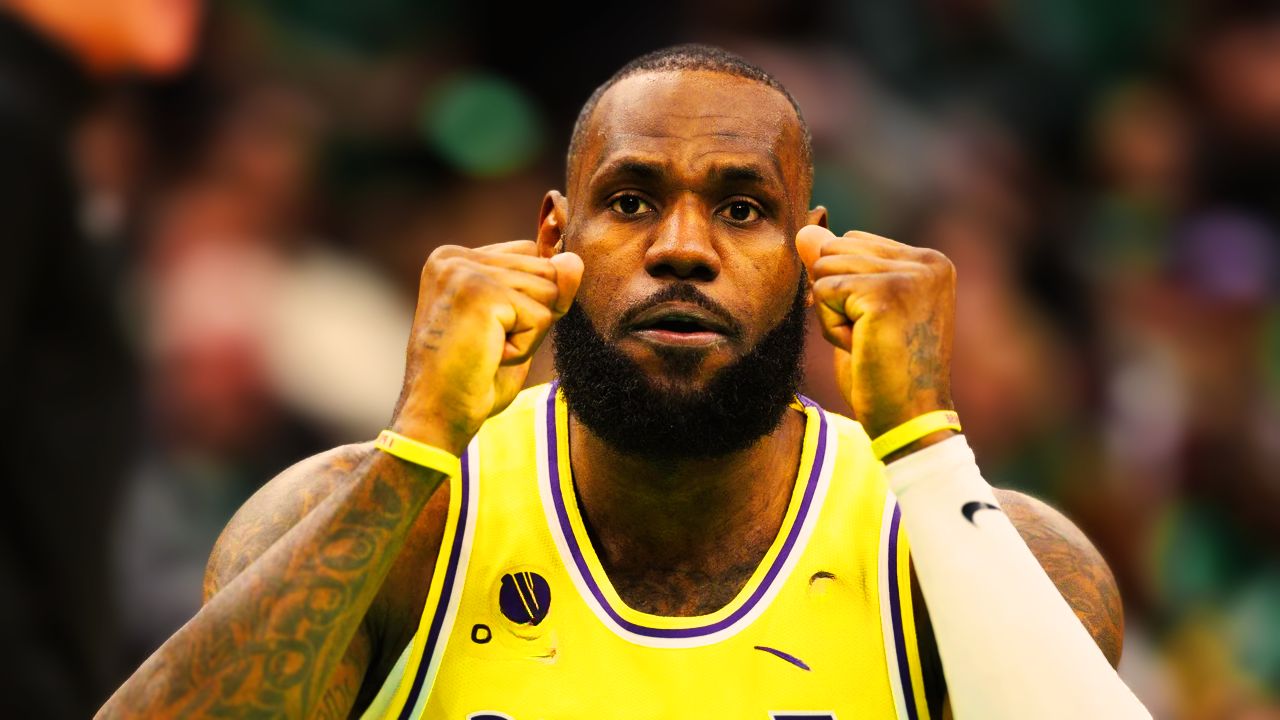In the realm of athletics, there are few names that carry the same weight as LeBron James. The NBA legend, recognized for his skills on the court and his influence in society, is now in the middle of a controversial discussion. This dispute was sparked by media expert Dan Le Batard when he made a daring comparison between LeBron and Muhammad Ali, the iconic boxer and advocate. Yet, Jason Whitlock, a former ESPN commentator, has strongly criticized James for the comparison, doubting its validity and LeBron’s status in the realm of sports greatness.
Whitlock’s critique: a strong contrast
In a widely circulated tweet, Jason Whitlock ridiculed Dan Le Batard’s comparison of LeBron James to “today’s Muhammad Ali” as completely absurd. Whitlock argues that making such a comparison is not only incorrect but also deceptive. Dan Le Batard compares LeBron James to Muhammad Ali of today. “This is laughable,” Whitlock declared, pointing out the vast differences in their activism and impact. For Whitlock, the essence of Ali’s legacy was his willingness to confront and debate his adversaries, a trait he believes LeBron lacks.
Whitlock’s critique goes beyond mere disagreement. He accuses LeBron of embracing a comfortable and risk-free activism, contrasting it sharply with Ali’s confrontational approach. “As an ‘activist,’ LeBron faces zero resistance. He’s never been interviewed by a critic. Ali confronted and debated his adversaries. LeBron ducks them and pays people to produce content in support of him,” Whitlock asserted. This view reflects a broader skepticism about LeBron’s activism, suggesting that his public persona and endorsements might overshadow any genuine social impact.
Dan Le Bard calls LeBron James “today’s Muhammad Ali.” This is laughable. As an “activist” LeBron faces zero resistance. He’s never been interviewed by a critic. Ali confronted/debated his adversaries. LeBron ducks them and pays people to produce content in support of him. Ali…
— Jason Whitlock (@WhitlockJason) July 30, 2024
The broader context: lebron’s place in sports and society
Whitlock’s comments are not a singular criticism, but rather contribute to a broader conversation about LeBron’s impact on modern sports and activism. Ever since LeBron James joined Nike in 2003, he has become closely associated with the brand, which has encountered various ethical controversies. Critics have raised concerns about Nike’s labor practices in developing nations, with Whitlock’s remarks suggesting that LeBron’s affiliation with the brand is connected to these problems, alleging that he only represents Nike’s worldwide interests.
However, it is important to note that LeBron James has openly shown appreciation for Muhammad Ali and recognized his influence on a global scale. Following Ali’s passing in 2016, LeBron honored him by stating, “He is the GOAT and his greatness extended beyond the boxing ring.” LeBron consistently acknowledges Ali as a trailblazer who paved the way for athletes like him to achieve worldwide recognition without encountering societal discrimination.
Lebron’s activism and the modern context
LeBron’s activism, while different in nature from Ali’s, is not without merit. He has actively supported a range of social causes, particularly through his initiative “More Than A Vote,” aimed at addressing voter suppression after George Floyd’s death. This group has been instrumental in encouraging voters to participate and bringing attention to electoral unfairness.
LeBron was given the Muhammad Ali Legacy Award for his contributions, showcasing his influence on and off the basketball court. This recognition demonstrates how activism in sports is changing, with new approaches and priorities that can be very different from those of previous legends such as Ali.

Is the debate a fair or flawed comparison?
The discussion about LeBron James and Muhammad Ali shows how challenging it can be to compare athletes from various time periods and backgrounds. Ali’s dedication to activism was closely connected with his individual beliefs and the social and political conditions of his era. LeBron’s strategy, although less direct, mirrors the current scene of sports and activism.
Whitlock’s central point is that LeBron’s influence does not match Ali’s revolutionary impact. Nevertheless, it’s important to recognize that both athletes have left a lasting impact during their eras. Although Ali defied traditional societal standards and encountered significant personal dangers, LeBron has dealt with a separate array of obstacles by using his influence to tackle current issues that connect with present-day audiences.
The enduring influence of icons
Ultimately, determining if LeBron James can be compared to Muhammad Ali relies on how impact and legacy are evaluated. Whitlock’s critiques provide a strong viewpoint on LeBron’s impact and influence, while also prompting a more extensive conversation on our perception and admiration of athletes from various time periods.
The ongoing discussion highlights how sports and activism are constantly changing, showing the various ways athletes can make a difference.


